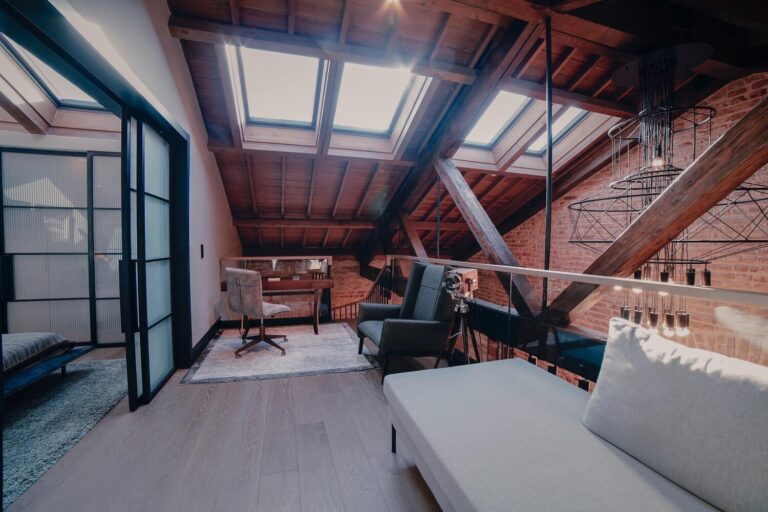4 Ways To Achieve Solar Panel Financing

Installing solar panels in your home can be one way to do your part for the planet, but the cost to purchase and have them installed might be a deterrent. Even if you know you’ll save money over the long term, it may be hard to find the funds for solar panels in the interim.
Before you make a decision either way, a couple of things to consider are whether solar panels are worth the cost to you and what methods are available for solar panel financing.
The Cost of Solar Panels
When it comes to the cost of solar panels, there isn’t a fixed number. How much it will cost will depend on how big a system you want to install. In 2021, it’s estimated that the cost is typically around $3 per watt for a complete solar panel system with installation.
Since the average buyer installs a 6,200-watt system, the cost averages $18,600 per system. However, if you decide that you need more watts because you have a bigger family or a bigger home, the cost of solar panels will run higher.
Similarly, if you have a smaller family or a smaller home, solar panels might cost you less. Either way, buying solar panels can be expensive, and it may require some kind of solar power financing to purchase panels.
Potential Benefits of Solar Panels
One of the main benefits of solar panels is the potential to reduce or completely eliminate your energy bills. Depending on how much sunlight there is where you live, how many panels you install, and your energy use, you could potentially receive enough power through solar panels to completely meet your needs.
Installing solar panels could result in significant savings, especially if you live in an area where power is expensive. Given that the average monthly U.S. household energy costs are about $122, that easily could translate into significant savings.
Even with the cost of solar panel installation, the expense of the purchase can be recouped in an average of eight to 11 years, depending on your installation costs, how much electricity your panels produce, how much electricity costs in your area, and how your local electric company regulates solar power. After recouping installation costs, the amount you’ll potentially save over the life of your panels can also add up.
Another benefit of solar panels is the potential to increase the resale value of your home. Research has shown that, on average, the resale value of a home with solar panels increases by about $15,000.
Solar panels are also known to extend the life of a roof since they shelter the roof and protect it from damage in storms and everyday wear and tear. If a homeowner plans to replace their home’s entire roof at the same time as a solar panel installation, it’s less likely that they’ll need to re-roof during the solar panel lifetime.
For some people, one of the biggest benefits of installing solar panels, however, is knowing that they’re using renewable energy and helping to reduce greenhouse gasses. This could especially be important for those living in a state where the majority of the energy generated is through non-renewables power sources.
Potential Drawbacks of Solar Panels
Solar panels have the potential to save homeowners money and do a lot of good for the planet, but not everyone buys them because they do tend to have a large upfront cost. And while solar power financing can help make solar energy possible for more people, not everyone qualifies.
Another drawback to solar energy is that how much you can save on energy costs depends entirely on the weather. If there is a long stretch of overcast weather or if you live in an area that doesn’t get a lot of sun, for example, you might not be able to generate enough solar energy to take care of your energy needs. Battery storage systems have vastly improved in the last decade, however, and can improve the overall solar setup.
Solar energy also uses a lot of space, so make sure your roof is large enough to have enough panels to power your entire home. If you choose not to put them on your roof, they will take up space in your yard.
Saving Money by Installing Solar Panels
More than 2.5 million homeowners in America currently have solar panels—and the savings can quickly add up. Not only can solar panels last for 25 years or longer, but a homeowner who might spend an average of $150 a month on an electric bill would save more than $65,000 in that same amount of time.
Of course, the cost of solar panel installation upfront can be prohibitive, so it’s best to examine your solar panel financing options before you proceed with a purchase.
Four Options for Solar Panel Financing
How many years can you finance solar panels? The average loan duration for solar panel financing is 10 to 20 years, though you may find loans with maturity periods ranging anywhere from three years to 30.
If you’re looking into solar panel financing, here are a few things you should consider:
1. Tax Credits and Rebates
Smart solar power financing strategy includes the use of all available tax credits and rebates. The federal government currently offers tax benefits on solar panels installed through Dec. 31, 2023, and many states offer rebates that further reduce the cost. To find out more about what’s offered in your area, check out the Database of State Incentives for Renewables & Efficiency®.
On top of that, many states also offer Solar Renewable Energy Credits (SRECs) . Homeowners who own their solar power systems can sell these credits to utility companies throughout the year.
If you generate excess energy, you can also potentially sell this back to the utility company, which is also a key part of any solar panel financing strategy. While that won’t pay for your system upfront, it could help you cover part of the costs of solar financing. Check with a tax professional to see if you are eligible for any of these benefits.
2. Solar Panel Leases
One unique strategy for solar panel financing is to lease your solar panel. With a lease, a company typically pays to install the panels on your roof and charges you a monthly fee over the term of the lease. The company owns the panels and remains responsible for any maintenance required on them.
While you will not be eligible for federal tax credits if you go this route, solar panel leasing may be a good option for those who struggle to find solar panel financing or don’t qualify for a solar panel loan.
3. Secured Solar Panel Loans
Since you are adding to your home, you may opt to use a Home Equity Line of Credit (HELOC) to finance solar panels. This is a type of revolving credit line that is secured by your home equity. Because it is a secured loan, you may qualify for a relatively low interest rate. However, if you fail to pay it back, the lender can take your home as repayment for the loan. Also, you need to have equity in your home to qualify for a HELOC.
4. Unsecured Solar Panel Loans
An unsecured solar panel loan is an unsecured personal loan that you can use to purchase solar panels without requiring that you have home equity. To qualify, the lender considers your income and your credit rating (among other financial factors that vary from lender to lender). As unsecured loans are installment loans, you may seek out a loan term that fits your budget.
The Tax Benefits of Solar Panels
Installing solar panels can help reduce a homeowner’s federal income tax due in the year the installation is complete. There is a 26% tax credit in place for systems installed in 2020-2022, and 22% for systems installed in 2023. The solar panel tax credit expires starting in 2024 unless Congress renews it before then.
To qualify for the solar panel tax credit, your solar panels must be installed at your primary or secondary U.S. residence between Jan. 1, 2006, and Dec. 31, 2023. You also must own the solar panel system, i.e. you purchased it with cash or solar panel financing but you are neither leasing nor are in an arrangement to purchase electricity generated by a system you do not own—and it must be new or being used for the first time. The credit can only be claimed on the original installation of the solar equipment.
You might be able to take advantage of state and city incentives, including rebates, as well. To see what’s available in your area, refer to the Database of State Incentives for Renewables & Efficiency .
The Takeaway
There’s no question that solar panels are environmentally friendly. Over time they can also be economically friendly, saving homeowners money on their electricity bill. Doing some research about residential solar panels and general home improvement financing are good steps to take to see if it’s the right choice for your home.
SoFi Personal Loans have competitive rates and loan terms that may fit your budget. Since they’re unsecured, there is no need to have home equity to be eligible.
Disclosures:
SoFi Loan Products
SoFi loans are originated by SoFi Lending Corp. or an affiliate (dba SoFi), a lender licensed by the Department of Financial Protection and Innovation under the California Financing Law, license # 6054612; NMLS # 1121636
. For additional product-specific legal and licensing information, see SoFi.com/legal.
Tax Information: This article provides general background information only and is not intended to serve as legal or tax advice or as a substitute for legal counsel. You should consult your own attorney and/or tax advisor if you have a question requiring legal or tax advice.
External Websites: The information and analysis provided through hyperlinks to third party websites, while believed to be accurate, cannot be guaranteed by SoFi. Links are provided for informational purposes and should not be viewed as an endorsement.
Third Party Brand Mentions: No brands or products mentioned are affiliated with SoFi, nor do they endorse or sponsor this article. Third party trademarks referenced herein are property of their respective owners.
SOPL19028
This post is originally on SoFi.






